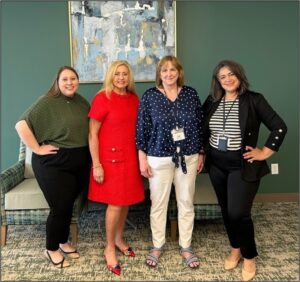
Recognizing Mental Health Awareness Month
Caring for Our Seniors’ Emotional, Psychological, and Social Well-Being
May is both Mental Health Awareness Month and Older Americans Month, making it the ideal time to highlight the importance of mental health for the older adults that we serve.
Older Americans Month celebrates the contributions—the time, talent, and experience—that older adults bring to our communities. Mental Health Awareness Month focuses on raising awareness of mental health issues and fighting the stigma that exists around mental illness.
At McGregor PACE, we feel strongly about supporting individuals as they age, and that means caring not only for their physical needs, but for their emotional, psychological, and social well-being. As we age, we also navigate—and endure—more of life’s more difficult experiences, such as dealing with a serious illness, recovering from a major surgery, or grieving the death of a partner or loved one.
How can we prioritize and support the mental health needs of our older loved ones? The following are some of the ways we do so at McGregor PACE:
We pay attention to the warning signs of mental health issues.
According to the National Institute of Mental Health, these are some of the most common signs:
- Changes in mood, energy level, or appetite
- Difficulty sleeping—or sleeping excessively
- Difficulty concentrating or expressing feelings of being on edge or restless
- Increased feelings of worry and stress
- Anger, irritability, and aggressive behaviors
- Misusing drugs or alcohol
- Feelings of sadness or hopelessness
- Suicidal thoughts
- Intrusive thoughts or behaviors that interfere with daily life
If you notice any of these signs with a parent or loved one, please reach out to their primary health care provider. You can also contact the 988 Suicide & Crisis Hotline.
We connect our participants with mental health resources.
PACE participants have access to a multidisciplinary team of doctors, nurses, and other care professionals who care about their well-being. The team takes a holistic approach to care and, if they notice any of the warning signs above, they will connect the individual with other specialists and resources who can provide guidance and treatment.
We promote socialization to prevent loneliness and isolation.
If your loved one sits alone at home most of the day without company or stimulation, they may be more prone to feelings of isolation or loneliness. The PACE program provides a destination—our day centers—and opportunities to meet and enjoy the company of others, pursue hobbies and interests, and participate in new activities.
If you are interested in learning more about the PACE program for yourself or a loved one, please do not hesitate to reach out to our team.


